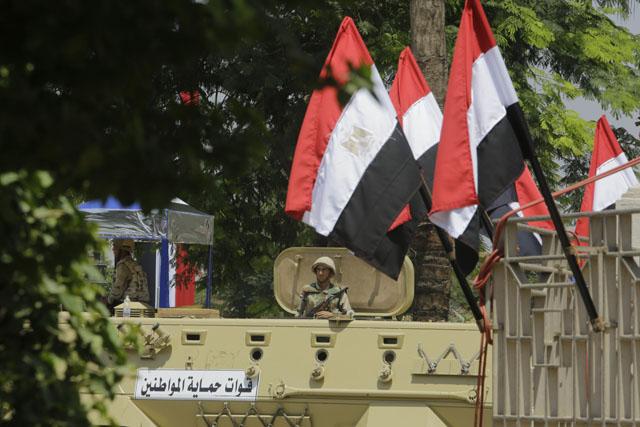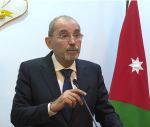You are here
Egypt moves to restrict Ramadan sermons
By AP - Jun 29,2014 - Last updated at Jun 29,2014
CAIRO — Egypt will restrict sermons during the holy month of Ramadan to topics of faith and morality, the state’s top official in charge of religious affairs said Sunday, in the latest measure by the government to control mosques and limit access of opponents to them.
The announcement is yet another move by authorities to crackdown on supporters of the Muslim Brotherhood, and limiting in the process free speech in the deeply polarised country.
Mohammed Mokhtar Gomaa said the decision should ensure that sermons during Islam’s holy month of fasting “unite people, not divide them”. He said the religious speech had been “hijacked” for political purposes, in reference to the previous government, led by Islamist president Mohamed Morsi.
“The religious speech was politically driven, which affected the moral side,” he told reporters at a news conference on the first day of the observance. “Now we’re in a race against time trying to restore morals.”
Morsi was ousted last year following mass protests against him denouncing his group’s attempt to monopolise power. The military removed Morsi, and its chief, Abdel Fattah El Sisi, was elected president earlier this month.
In his campaign, Sisi stressed that religious discourse needs to be restructured, saying a free for all interpretation of religion has helped spread extremism. Islamist groups rely on mosques to recruit new members and also rally for political positions ahead of votes.
Since Morsi’s ouster, religious authorities moved to purge mosques from preachers deemed supportive of Islamists and have set guidelines for Friday sermons.
Gomaa said new regulations will also specify what the sermons will address in Ramadan, when more worshippers than usual spend time in mosques, praying and listening to religious lessons. Ramadan is the time Muslims believe God started to reveal the Koran to the Prophet Muhammad, and for believers, it is a time of reflection and worship, remembering the hardships of others and being charitable.
The ministry has also set new rules to regulate a Ramadan tradition — one where many people spend the last ten days of the month inside mosques, praying, fasting and reading the
Koran. The Brotherhood and other Islamist groups often used the retreat for recruitment.
The ministry’s website said that this year, the stay would be allowed only in central mosques under the supervision of a state-authorised cleric. The buildings will only host people who live in the immediate neighbourhood.
It was not clear how the government plans to implement the regulations.
Some 12,000 independent preachers have been barred from delivering sermons. In recent months, the ministry’s website had been posting outlines for the weekly sermons delivered each Friday. Anyone who strays from them in Egypt’s more than 100,000 mosques risks removal.
Last Friday’s sermon spoke about “rationalising consumption”, just after the president mentioned the country needed belt-tightening efforts from all Egyptians.
Gomaa said Sunday 50,000 licensed preachers will be deployed to lead late night Ramadan prayers. The ministry had already restricted preaching in mosques to state-authorised clerics.
He reiterated a ban on holding Friday prayers at thousands of small, unregulated mosques known as “zawaya”.
A number of measures have been used to crack down on the Brotherhood. It has been declared a terrorist organization and some of its members have had their assets frozen. The government has also passed a new law restricting protests.
In a separate development, a Cairo appeal court has set July 22 as the date of a retrial for a prominent Egyptian activist sentenced to 15 years in prison in absentia for organising an unauthorised protest and assaulting a policeman.
The sentencing of Alaa Abdel Fattah and 24 others was the latest blow to liberal activists at a time of rapidly eroding freedoms.
The sentence was the toughest against any of the secular activists behind the 18-day uprising that ended the reign of longtime autocrat Hosni Mubarak in 2011. It is also the first conviction of a prominent activist since Sisi took office.
Related Articles
Egyptian authorities decided Tuesday to take control of independent mosques, state news agency MENA reported, in a move aimed at curbing Islamist dissent.
Egypt has banned unauthorised preachers from giving sermons or teaching Islam in mosques and other public places, according to a decree on Saturday marking a further step in official efforts to curb Islamist influence.
Tunisian authorities are seeking to regain control of certain mosques they say have become incubators for radical Islamist ideology, which has spread since the 2011 revolution.

















